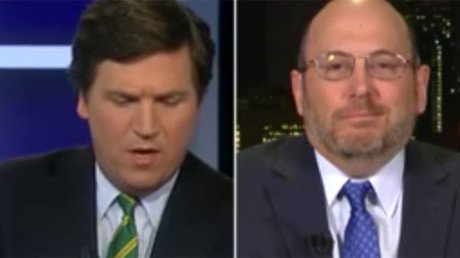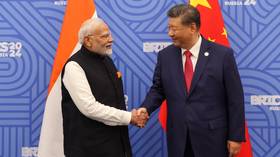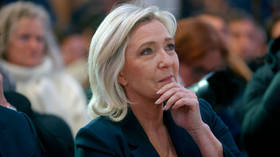‘I never met a Clinton supporter who was influenced by hacked emails’ – Scott Adams, Dilbert creator

Democratic presidential candidate Hillary Clinton has been quoted as saying that FBI Director James Comey and Russian President Vladimir Putin were the chief culprits for her loss to Donald Trump in November.
Clinton, addressing donors in Manhattan on Thursday, claimed her surprise defeat in the presidential elections was the result of two events: Comey’s announcing the reopening of an investigation into her use of a private email server, and the “unprecedented Russian plot to swing this election.”
The Democratic contender ignored a host of internal problems associated with her presidential campaign as possible reasons for her landslide defeat.
RT: What do you make of that claim from Hillary Clinton? Is it sour grapes or is there more to it?
Scott Adams: Well, you have to put it in context. I recall that soon after the election I saw on article on CNN that listed 24 different reasons that she lost. And since then I think several have been added, so somewhere in the neighborhood of 30 different reasons have been given for why she lost. I personally have not met anybody who was a Clinton supporter who changed their mind because of something that came out in any of the email hacks. So first of all, I think there was a big assumption that it made a difference, and secondly, I don’t know what source she would use to read Putin’s mind from a distance. I’m not sure what new technology she has, or perhaps there are secret sources that she can’t refer to. I suppose that is possible, but it’s impossible for us to know from here.
RT: How much influence do you think the hacking scandal had, on the outcome of the presidential election? Is that really why Trump won?
SA: One of my filters on life to determine what is ‘fake news’ or ‘real news,’ if you want to use that framework, is to see first of all if there are any statistics that would support it, and I don’t see any. And second, to ask yourself if you know anybody personally who has had any affect by this. And the fact that I don’t know one person who has ever admitted to changing their mind because of what they learned in a WikiLeaks, I think that is also something. By the way, when these leaks were coming out, I was one of the few people, I think, who was saying ‘there’s really nothing in here.’ They’re all sort of empty but they cause a lot of talk and I suppose the talk may be influential, but yet I didn’t see anybody actually change because of it.
RT: During the presidential debates, you said Trump was winning because "voters don’t care about facts and debating style. They care about how they feel." Could you explain that?
SA: I should your listeners that I have a background in hypnosis. I’ve studied the field of persuasion for decades, and one of the things that people who study what I study know is that people don’t make decisions based on facts and policies and rational behavior. Now they do in the limited sense, in these rare cases where there’s no emotional involvement in the decision, such as, maybe deciding the best price to pay in the store. But when you have politics or life or career or your loves, the emotional component is so big that it just overwhelms your sense of reason. This election never did have anything to do with the facts or the policies or the details, and you can tell that because Trump has already moderated a lot of the things that he’s said early in the process. So obviously the details didn’t matter that much.
The statements, views and opinions expressed in this column are solely those of the author and do not necessarily represent those of RT.














